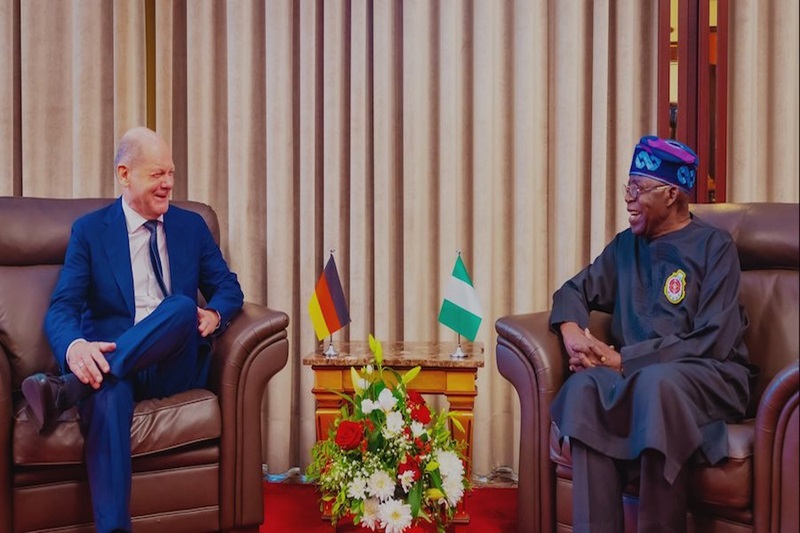Olaf Scholz, Chancellor of Germany, has said that his country is willing to invest in gas and minerals in Nigeria, an African country on the Gulf of Guinea. The investment is aimed at strengthening bilateral relations between Germany and Africa’s largest economy.
Olaf Scholz started his trip to Nigeria, Africa’s largest oil producer, on Sunday. This was the third visit to the region by Scholz in two years and his first visit to Nigeria since the inauguration of the new government under President Bola Tinubu.
After arriving in Nigeria, he held a meeting with Nigerian President Bola Tinubu in the capital Abuja. During the meeting, they discussed potential investment opportunities. Olaf Scholz also met the president of the commission of West African regional group ECOWAS.
Germany to invest in Nigeria’s gas and minerals
Olaf Scholz told reporters in Nigeria, “There is a willingness to invest, especially in critical minerals. If we are successful, if there is a better chance of exporting the produced gas, it is then the question for German companies to do their private business.”
Bola Tinubu urged German businesses to invest in pipelines in Nigeria. Olaf Scholz said that German companies were looking forward to cooperating with Nigerian gas companies. He further said that German companies wanted to build railways in Nigeria.
The railways sector in Nigeria has been dominated by Chinese companies for so many years.
Keep Reading
Germany aims to import Nigerian natural gas
Germany aims to import natural gas from Nigeria in an effort to diversify its energy supply, Chancellor Olaf Scholz has said.
Nigeria also sought partnership with Germany in education, power, mineral resources and other sectors. Olaf Scholz said that the cooperation with Nigeria, the largest economy in Africa, would be beneficial for both countries.
As Africa’s largest economy and most populous country, Nigeria is seeking investments in various sectors. Nigeria is also eyeing partnership with other European countries in order to play an increasingly influential role on the continent and in the world.

